Resilience, security of supply and strategic autonomy
Security of supply is the third focal point. Ninety per cent of everything we use comes by sea. The port plays a vital role in keeping society running, especially in times of climate change and geopolitical tensions. Dry summers have led to low water levels in the Rhine, causing problems with hinterland connections. In addition, global tensions are increasing cyberattacks, sanctions and disruptions in the supply chain. Close to home, we also face challenges such as subversive crime, the nitrogen issue, grid congestion, employment and societal discussions on health and the living environment. The port must adapt to meet these complex challenges and support the global economy.

3
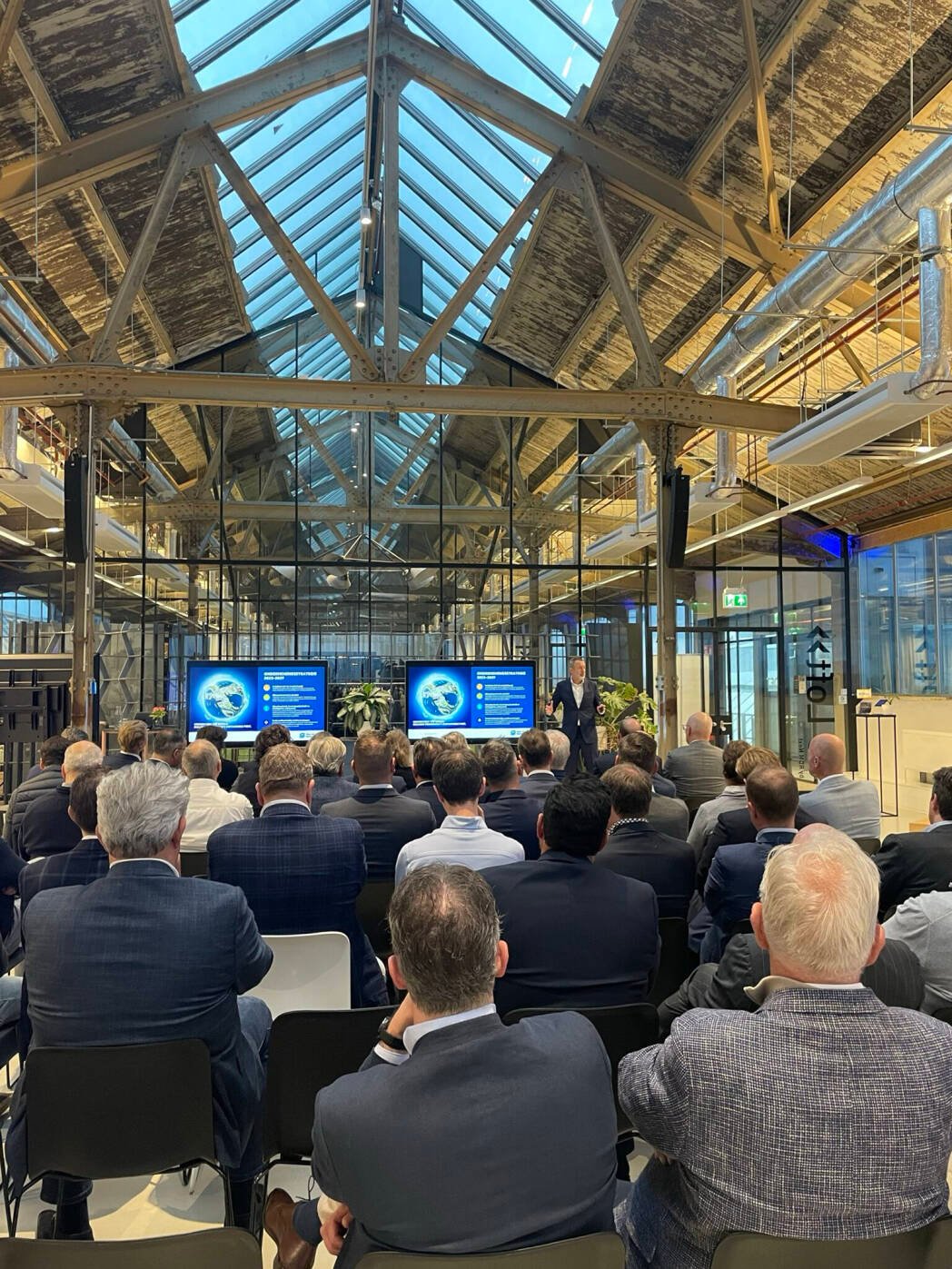
The third major development relates to society, which places increasing importance on well-being in addition to prosperity. A healthy and safe living environment, nature and pleasant and interesting work are becoming increasingly important. As a port, we also want and need to offer these aspects to the region. We will only earn a future if we succeed in that.
Digitalisation is playing a key role in the huge transition the port is making. It helps us make the port as efficient as possible. Improved insights also enable sustainable decision-making. The dark side of digitalisation is digital threats. These are as great as ever for companies in the port of Rotterdam, and resilience against such threats is a prerequisite for the proper functioning of the nautical and logistics processes in and around the port.
When we drafted the previous corporate strategy in 2019, we had never heard of the coronavirus and geopolitical relations were completely different. This indicates that the context in which the port of Rotterdam operates is constantly changing. Major developments affect strategy. First, these are economically uncertain times with many geopolitics issues at play. Certainly, since the coronavirus, we want to spread risks, and we see the importance of more production within Europe. We do not want to be dependent on one region and want to be agile in case of interruptions in the supply chain, due to geopolitical or climate-related events.
A second development is the energy and raw materials transition. The implementation of the energy transition is well underway, and the raw materials transition is taking on increasingly specific forms. It is important to keep up the pace in this regard. At the same time, initiatives require physical space and environmental space: mainly nitrogen and noise. Maintaining the pace of progress is therefore challenging.
Major developments
Working together towards a sustainable future
Our new corporate strategy gives us direction and energy to achieve our goals. We cannot face these challenges alone. Collaboration with governments, partners and residents is essential. Only by working together can we build a new energy system, ensure security of supply and realise a sustainable future for the port of Rotterdam. We invite you to join us in this vision and build the port of the future together. Together, we can turn today's challenges into tomorrow's opportunities.
Future-proof earning power
Predictable and competitive market conditions are crucial to a successful transition to a fossil-free and circular port. Energy costs and smooth licensing are pressing examples. As the Port Authority, we are in constant dialogue with our contacts in The Hague and Brussels and with other ports to ensure the necessary focus on a good investment climate. Companies need some degree of consistency and long-term plans from politicians. It is not workable if halfway through a 20- to 25-year investment period, the goalposts are suddenly moved.
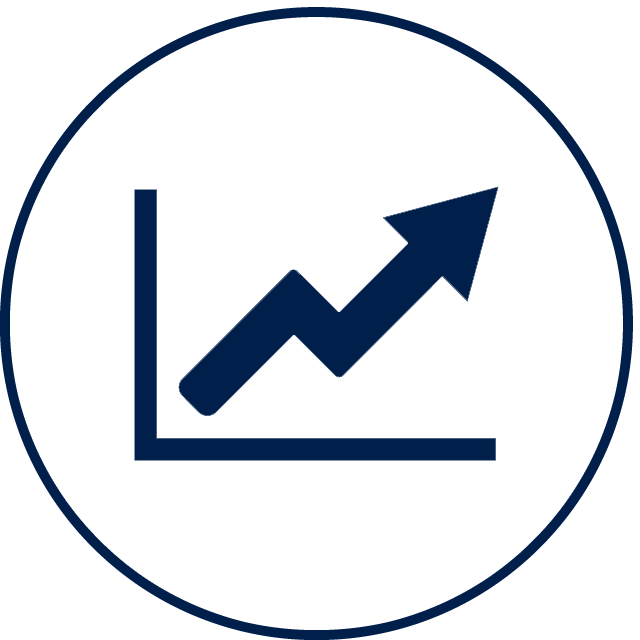
4
In balance with society
Employment
Rotterdammers also work in the port of Rotterdam, and this is a major point of attention. Recent research we conducted in collaboration with Deltalinqs and the Municipality of Rotterdam has provided several insights. There are currently 6,000 vacancies at companies in the port and this number is expected to rise further. Finding technical colleagues remains a challenge. The energy transition and digitalisation are creating many new positions at higher vocational education (hbo) and university levels, while secondary vocational education (mbo) graduates remain by far the largest group we need. The good news is that the number of permanent jobs is rising and organisations in the port pay above average.
The first point is our social role. Support in the area for the port is high. We must never take that for granted and must therefore remain in dialogue with those in our surroundings. Simply explaining is not enough: we must also listen to what people think of our activities and act accordingly. After all, the energy transition is going to bring major changes. Consider, for example, importing ammonia.
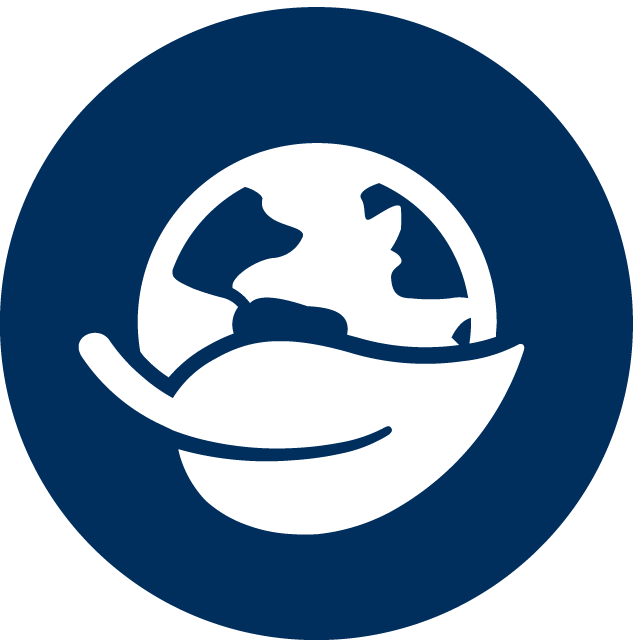
1
Climate neutral and circular
Choices and priorities
We are therefore increasingly improving the collaboration with seaports in the Netherlands and abroad. We share the same hinterland and are part of a chemical cluster ranging from Antwerp, Zeeland, Moerdijk, Rotterdam, Geleen to North Rhine-Westphalia. This cluster as a whole needs to become more sustainable, and we can only achieve that if we collaborate. Together, we need to build a new energy system. One hundred and fifty years ago, different countries’ railway tracks were not compatible – we want to avoid that now in the energy transition.
The second is to continue unabated with sustainability. This consists of the energy transition on the one hand and the raw materials transition on the other. It may seem like we are finished once the electricity grid is filled with green power, but making everything we produce in the world circular is at least as big a challenge. The chemical industry is responsible for the production of plastics, insulation materials, solar panels, wind turbines, medicines, but also trainers, for example. It is incredibly important to make that production sustainable and preserve it for Europe.
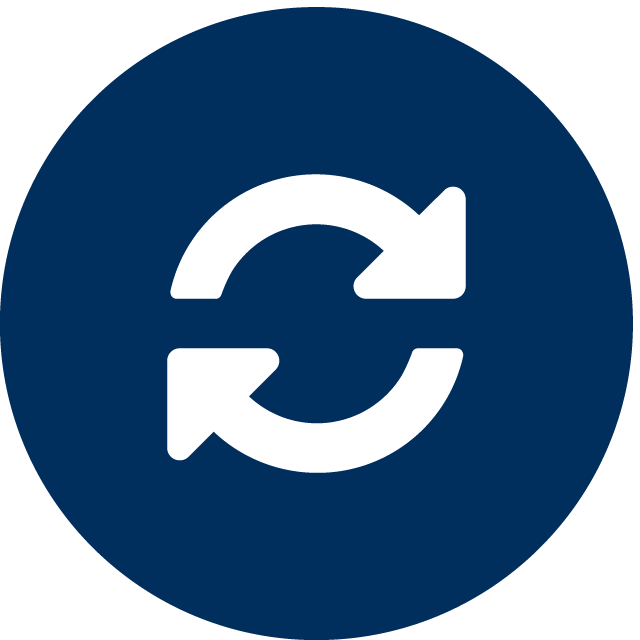
2
Several major developments have also influenced the choice and implementation of our focal points. You will find these later in this article. But first, we would like to explain the four focal points that are central to the corporate strategy over the next five years.
We want to remain a port for logistics, industry and energy. Together, they are incredibly important. They are also interconnected. For instance, energy fuels many industrial processes and logistics are needed to keep industry running. And that is not only in the port, but also in the hinterland. A quarter of containers in the port are filled with food products, and a quarter contain machinery parts or semi-finished products destined for hinterland production. Only four per cent of the contents of all containers are items for personal consumption.
HI FROM THE FUTURE
The Port of Rotterdam Authority is working on solutions in the here and now and for the long term. It all comes together in our purpose, 'Connecting the world. Building tomorrow's sustainable port.' This therefore determines the new strategy. And we cannot implement that alone. We do it together with authorities, clients, partners and residents. While we will not cover the entire corporate strategy in detail, this article aims to provide you with an insight into our key choices and focal points.
Every five years, the Port of Rotterdam Authority creates a new corporate strategy. It is a time of reflection and prioritisation. The new strategy highlights our unique position as a Port Authority and how we intend to strengthen it in the coming years. We are both a global player and local partner, serving public interests and pursuing commercial goals.
Scroll down
Corporate strategy for 2025-2029:
Prepared for the future
The third major development relates to society, which places increasing importance on well-being in addition to prosperity. A healthy and safe living environment, nature and pleasant and interesting work are becoming increasingly important. As a port, we also want and need to offer these aspects to the region. We will only earn a future if we succeed in that.
Digitalisation is playing a key role in the huge transition the port is making. It helps us make the port as efficient as possible. Improved insights also enable sustainable decision-making. The dark side of digitalisation is digital threats. These are as great as ever for companies in the port of Rotterdam, and resilience against such threats is a prerequisite for the proper functioning of the nautical and logistics processes in and around the port.
When we drafted the previous corporate strategy in 2019, we had never heard of the coronavirus and geopolitical relations were completely different. This indicates that the context in which the port of Rotterdam operates is constantly changing. Major developments affect strategy. First, these are economically uncertain times with many geopolitics issues at play. Certainly, since the coronavirus, we want to spread risks, and we see the importance of more production within Europe. We do not want to be dependent on one region and want to be agile in case of interruptions in the supply chain, due to geopolitical or climate-related events.
A second development is the energy and raw materials transition. The implementation of the energy transition is well underway, and the raw materials transition is taking on increasingly specific forms. It is important to keep up the pace in this regard. At the same time, initiatives require physical space and environmental space: mainly nitrogen and noise. Maintaining the pace of progress is therefore challenging.
Major developments
Our new corporate strategy gives us direction and energy to achieve our goals. We cannot face these challenges alone. Collaboration with governments, partners and residents is essential. Only by working together can we build a new energy system, ensure security of supply and realise a sustainable future for the port of Rotterdam. We invite you to join us in this vision and build the port of the future together. Together, we can turn today's challenges into tomorrow's opportunities.
Working together towards a sustainable future
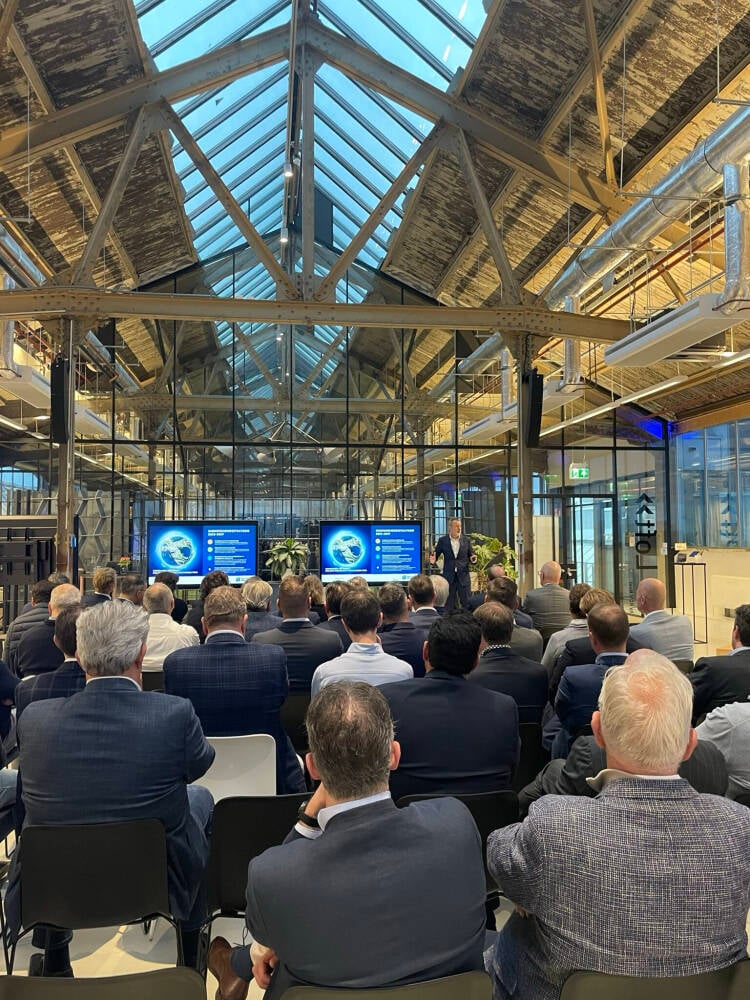
Future-proof earning power
Predictable and competitive market conditions are crucial to a successful transition to a fossil-free and circular port. Energy costs and smooth licensing are pressing examples. As the Port Authority, we are in constant dialogue with our contacts in The Hague and Brussels and with other ports to ensure the necessary focus on a good investment climate. Companies need some degree of consistency and long-term plans from politicians. It is not workable if halfway through a 20- to 25-year investment period, the goalposts are suddenly moved.
4
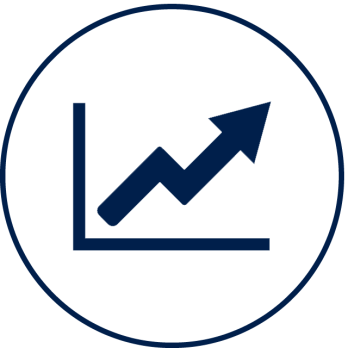
In balance with society

The first point is our social role. Support in the area for the port is high. We must never take that for granted and must therefore remain in dialogue with those in our surroundings. Simply explaining is not enough: we must also listen to what people think of our activities and act accordingly. After all, the energy transition is going to bring major changes. Consider, for example, importing ammonia.
1
Employment
Rotterdammers also work in the port of Rotterdam, and this is a major point of attention. Recent research we conducted in collaboration with Deltalinqs and the Municipality of Rotterdam has provided several insights. There are currently 6,000 vacancies at companies in the port and this number is expected to rise further. Finding technical colleagues remains a challenge. The energy transition and digitalisation are creating many new positions at higher vocational education (hbo) and university levels, while secondary vocational education (mbo) graduates remain by far the largest group we need. The good news is that the number of permanent jobs is rising and organisations in the port pay above average.
We are therefore increasingly improving the collaboration with seaports in the Netherlands and abroad. We share the same hinterland and are part of a chemical cluster ranging from Antwerp, Zeeland, Moerdijk, Rotterdam, Geleen to North Rhine-Westphalia. This cluster as a whole needs to become more sustainable, and we can only achieve that if we collaborate. Together, we need to build a new energy system. One hundred and fifty years ago, different countries’ railway tracks were not compatible – we want to avoid that now in the energy transition.
The second is to continue unabated with sustainability. This consists of the energy transition on the one hand and the raw materials transition on the other. It may seem like we are finished once the electricity grid is filled with green power, but making everything we produce in the world circular is at least as big a challenge. The chemical industry is responsible for the production of plastics, insulation materials, solar panels, wind turbines, medicines, but also trainers, for example. It is incredibly important to make that production sustainable and preserve it for Europe.
Climate neutral and circular
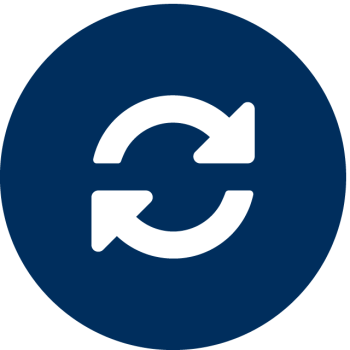
2
Choices and priorities
Several major developments have also influenced the choice and implementation of our focal points. You will find these later in this article. But first, we would like to explain the four focal points that are central to the corporate strategy over the next five years.
We want to remain a port for logistics, industry and energy. Together, they are incredibly important. They are also interconnected. For instance, energy fuels many industrial processes and logistics are needed to keep industry running. And that is not only in the port, but also in the hinterland. A quarter of containers in the port are filled with food products, and a quarter contain machinery parts or semi-finished products destined for hinterland production. Only four per cent of the contents of all containers are items for personal consumption.
The Port of Rotterdam Authority is working on solutions in the here and now and for the long term. It all comes together in our purpose, 'Connecting the world. Building tomorrow's sustainable port.' This therefore determines the new strategy. And we cannot implement that alone. We do it together with authorities, clients, partners and residents. While we will not cover the entire corporate strategy in detail, this article aims to provide you with an insight into our key choices and focal points.
Security of supply is the third focal point. Ninety per cent of everything we use comes by sea. The port plays a vital role in keeping society running, especially in times of climate change and geopolitical tensions. Dry summers have led to low water levels in the Rhine, causing problems with hinterland connections. In addition, global tensions are increasing cyberattacks, sanctions and disruptions in the supply chain. Close to home, we also face challenges such as subversive crime, the nitrogen issue, grid congestion, employment and societal discussions on health and the living environment. The port must adapt to meet these complex challenges and support the global economy.
Resilience, security of supply and strategic autonomy

3
Every five years, the Port of Rotterdam Authority creates a new corporate strategy. It is a time of reflection and prioritisation. The new strategy highlights our unique position as a Port Authority and how we intend to strengthen it in the coming years. We are both a global player and local partner, serving public interests and pursuing commercial goals.
HI FROM THE FUTURE